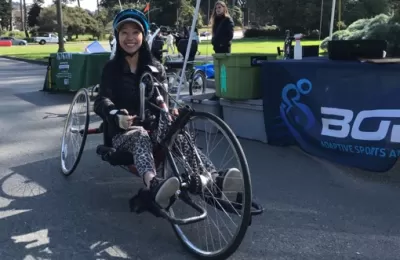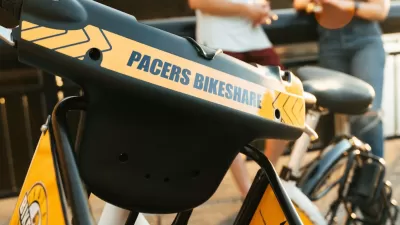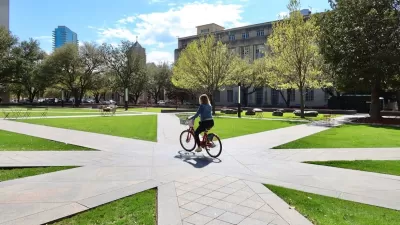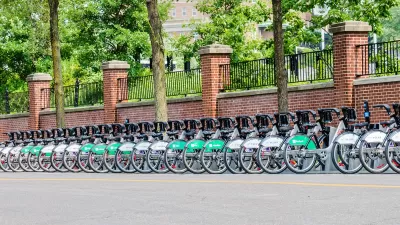The program offers a variety of adaptive bikes at no charge to people with disabilities.

People with disabilities will now be able to rent adaptive bicycles at no cost in San Francisco thanks to a new program from the San Francisco Municipal Transportation Agency (SFMTA), San Francisco Recreation & Parks (Rec and Park), and the Bay Area Outreach and Recreation Program (BORP).
According to an article in Mass Transit, “The BORP Cycling Center hosts a large collection of adaptive bikes, including handcycles, recumbent bikes, side-by-side tandems and other models.”
As the article notes, “The Adaptive Cycling Program will run on Saturdays from 1:00 p.m. to 4:00 p.m. by appointment only from April through October. Locations will alternate between the Music Concourse in Golden Gate Park next to the new accessible bandshell lot and the Great Highway at Judah Street.” The program was launched after a successful pilot program last year. “The pilot program was very popular among participants: survey respondents rated the program 4.76 out of five stars and encouraged the city to permanently adopt an adaptive cycling program.”
FULL STORY: SFMTA: Permanent adaptive cycling program unveiled in Golden Gate Park

Trump Administration Could Effectively End Housing Voucher Program
Federal officials are eyeing major cuts to the Section 8 program that helps millions of low-income households pay rent.

Planetizen Federal Action Tracker
A weekly monitor of how Trump’s orders and actions are impacting planners and planning in America.

Ken Jennings Launches Transit Web Series
The Jeopardy champ wants you to ride public transit.

Washington Legislature Passes Rent Increase Cap
A bill that caps rent increases at 7 percent plus inflation is headed to the governor’s desk.

From Planning to Action: How LA County Is Rethinking Climate Resilience
Chief Sustainability Officer Rita Kampalath outlines the County’s shift from planning to implementation in its climate resilience efforts, emphasizing cross-departmental coordination, updated recovery strategies, and the need for flexible funding.

New Mexico Aging Department Commits to Helping Seniors Age ‘In Place’ and ‘Autonomously’ in New Draft Plan
As New Mexico’s population of seniors continues to grow, the state’s aging department is proposing expanded initiatives to help seniors maintain their autonomy while also supporting family caregivers.
Urban Design for Planners 1: Software Tools
This six-course series explores essential urban design concepts using open source software and equips planners with the tools they need to participate fully in the urban design process.
Planning for Universal Design
Learn the tools for implementing Universal Design in planning regulations.
Heyer Gruel & Associates PA
Ada County Highway District
Institute for Housing and Urban Development Studies (IHS)
City of Grandview
Harvard GSD Executive Education
Toledo-Lucas County Plan Commissions
Salt Lake City
NYU Wagner Graduate School of Public Service





























